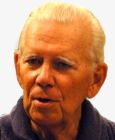

In my clinical practice, I treat people who suffer from just about every imaginable emotional malady – depression, anxiety, anger, addictions, eating disorders, sexual malfunctions, obsessions and compulsions, borderline personality disorders, impulsive acting out, relationship dysfunction, and on and on. To every single one of my patients, I emphasize how important it is for them to step up to the plate and take responsibility for their recovery.
How do I do this? I first help them understand the precise nature and cause of their problems. Then, in the spirit of what the psychologist Carl Rogers taught, “Insight is necessary but not sufficient,” I do my best to convince them that, to get better, they need to work hard, really hard, not only during our sessions, but also in the days between our sessions. I tell them: “The measly forty-five minutes you spend with me each week pales in comparison to the hours you spend with yourself, unwittingly rehearsing and practicing your irrational thinking and dysfunctional behavior. I'll do everything in my power to teach you what to do, but, if you don't work your therapy every day, you could very well come to our next appointment next week worse than better.”
In this vein, I make it a point to never let a patient leave my office without at least one between-session therapy assignment. It can be some therapeutic reading, a cognitive restructuring assignment, a behavioral task, or some combination of all three. It never fails that when patients works their therapy, every day, with vigor and focus, they get better.
The same dedication to work applies to creating happiness. All the wonderful happiness strategies in the world will be for naught unless you are willing to use them to bring happiness into your life. If you work them, life will get better. If you don't, it won't. It's that simple.
ACT
So, dear reader, here's your chance to get organized, get focused, and most important, get to work to increase your happiness quotient. I share below a three-step process I call ACT – A refers to creating your Action Plan for Happiness; C has to do with your massive Commitment to do what it takes to bring more pleasure, satisfaction, and happiness into your life; T means Turning On the Action. So, let’s swing into ACTion – now!
Action Plan For Happiness
Starting way back on February 19, 2013, and then each month thereafter, I have published a series of thirty blogs, each with a profound, powerful happiness action strategy. The first ten focused on ways to be happy with yourself (blogs 2/19/13 – 10/31/13), the next ten on how to create happiness with others (11/30/13 – 8/31/14), and the last ten on ways to be happy with life in general (9/30/14 – 6/30/15). In each package of ten, the first five strategies are cognitive or attitudinal, the second five behavioral things to do.
Whether you've followed my blogs month-by-month, logged in here and there, or are a first-timer, I suggest that you take the time to browse through these blogs. This may take some time and energy on your part. But, I think your happiness is worth it, don't you? Once you've done this, you are to select one strategy you will begin to do to be happier with yourself, with others, and with life. Write them down below. For each, make notes about where, when, and with whom you’ll act out these strategies.
My Action Plan
Happiness With Self Strategy:
Happiness With Others Strategy:
Happiness With Life Strategy:
Commitment
All right, great job! You've created a concrete happiness action plan that can add tons of pleasure and satisfaction to your life. But, all the plans in the world, without action, will be useless. You need to commit to follow through. Consider what the genius, Johann Wolfgang von Goethe: “At the moment of commitment, the entire universe conspires to assist you.” Here now are three ways for you to get and stay motivated to act out your Action Plan for Happiness each and every day.
1. Benefits/Costs. Too often people focus on how difficult and cumbersome it is to do what is good for them. They tell themselves, “It's too hard,” “I don't have the time,” “I've got too much to do.” Worse, they often also focus on the benefits of the short-range pleasure of lounging and doing nothing: “I think I'll just flip on the TV/read the newspaper while I sip coffee/kick up my feet and close my eyes.”
Unwittingly, this combination of focusing on the cost of action and on the pleasures of inaction demotivates them from acting to bring themselves long-range happiness. You want to reverse this by using costs and benefits to your advantage. What you want to do is focus both on the benefits of following through on your happiness action plan and the costs of inaction. If you keep clear about the benefits of doing and the costs of not doing, you strengthen your commitment to act.
Now, take a few minutes to identify as many benefits to acting on your happiness action plan and as many costs as you to not acting. Remember: Your happiness may very well depend on your motivation.
My Benefit/Cost Motivator
The Profound Benefits of Happiness Action:
The Profound Cost of Happiness Inaction:
2. Rewards and Punishments. It is human nature to move toward pleasure and away from pain. The good news is that you can purposely use pleasure and pain to your advantage by rewarding yourself for acting on your action plan and punishing yourself for choosing not to act. Take a few minutes to do the exercise below.
My Reward/Punishment Plan
Reward: What do I have available every day that I enjoy (e.g., reading the newspaper, lounging in the hot tub, dessert) that I will only allow myself to enjoy if I act on my Action Plan?
Punishment: What is something I dislike that I will use to punish myself for failing to act on my Action Plan (e.g., cleaning the bathroom, sending a $50 check to your least favorite political candidate, doing 25 push-ups)?
3. Support. Athletes have coaches, creative writers have editors, politicians have advisers. These individuals recognize that it is next to impossible for them to create the results they’re after without a strong support system.
The same goes for people like you and me who want to be happier in our lives. It is always helpful to have people who will commit themselves to supporting us to achieve our goals. Below, list three people you trust whom you will ask to support you on following through on your Action Plan for Happiness. What exactly will you ask them to do?
My Support System
Who What I'll ask them to do
1.
2.
3.
Turning On The Action
The last and most important step is for you to act. Yes, act. Nothing ever happens without a person doing what is necessary to make it happen. Let me quote again from Goethe: “Knowing is not enough; we must apply. Willing is not enough; we must do.”
So, now, right now, begin the process of integrating your Action Plan into the fabric of your life. To help you hold yourself accountable, I offer to you the following chart for you to record what you have done. Make fifty-two copies. Then, each week check off daily when you have acted on your plan.
My Actions
Self Strategy Other Strategy Life Strategy
Monday
Tuesday
Wednesday
Thursday
Friday
Saturday
Sunday
Going Forward
I want to end this blog by quoting, one last time, Johann Wolfgang von Goethe. He said: “Whatever you can do or dream you can, begin it. Boldness has genius, power and magic in it.”
There's so much wisdom in that quote. But, to pare it down to its basics, it communicates in beautiful words what I've preached throughout this blog: act, act boldly, because that, and only that, is the royal road to bring happiness into your life. Please, for you, not for me, begin to act on your Action Plan for Happiness, for your boldness has the power to magically change your life for the better.
As always, know that I support you in your quest for Happiness on Purpose. Contact me at anytime by email and I will respond. Looking ahead, I will devote the next several blogs to teaching you how to bring more happiness into your relationship with your significant other. I look forward to it, as I hope you do.
In the meantime, live healthy, happy, and with passion.
Russell Grieger, Ph.D. is a licensed clinical psychologist in private practice in Charlottesville, Virginia. The author of several self-help books, all designed to empower people to create a life they love to live, he invites you to check out his new relationship happiness book, The Couples Therapy Companion; A Cognitive Behavior Workbook. You may contact Dr. Grieger for questions or for more information at grieger@cstone.net



